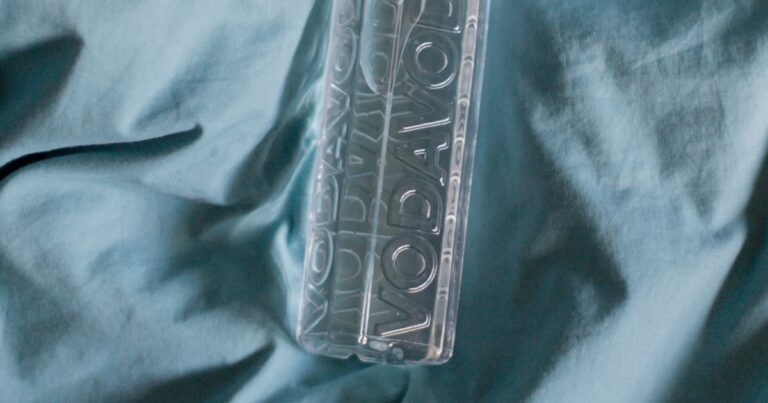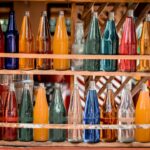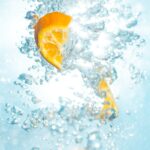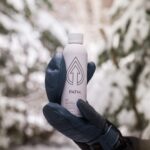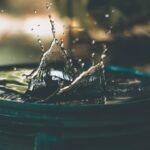Support our educational content for free when you purchase through links on our site. Learn more
What Is the Best Healthy Water to Drink? 💧 Top 10 Picks (2025)
Did you know that the average person spends nearly 70 % of their day dehydrated without even realizing it? We’ve all heard the mantra “drink more water,” but with so many options—from mineral-rich springs to ionized alkaline waters and trendy infused blends—how do you pick the best healthy water to drink? At Water Brands™, our expert taste testers and health pros dove deep into the world of hydration, sampling dozens of waters, analyzing mineral content, and decoding the science behind what makes water truly healthy.
In this comprehensive guide, we reveal the top 10 healthiest water brands of 2025, break down the myths around alkaline water, share insider tips on reading water labels, and even spill our favorite infused water recipes to make hydration exciting. Curious if that pricey bottled water is worth it? Wondering how your tap stacks up? Stick around—we’ll quench your thirst for knowledge and help you sip smarter every day.
Key Takeaways
- The best healthy water balances purity, mineral content, and taste—Evian, Fiji, and Essentia lead the pack in 2025.
- Alkaline water offers no magic cure but tastes smoother for some; hydration is what truly counts.
- Filtered tap water with a quality filter is often the healthiest, most eco-friendly, and cost-effective choice.
- Infused waters are a delicious way to boost intake without added sugars or calories.
- Choose sustainable packaging like glass or recycled plastic to reduce environmental impact.
👉 Shop top healthy water brands:
Table of Contents
- ⚡️ Quick Tips and Facts About Healthy Water
- 💧 The Hydration History: How Water Became Our Health Hero
- 💦 What Makes Water Healthy? Understanding Purity, Minerals, and pH
- 🥇 10 Best Healthy Water Brands to Drink in 2024
- 1. Evian: The Classic Mineral Water from the French Alps
- 2. Fiji Water: The Exotic Artesian Water with a Smooth Taste
- 3. Essentia: Ionized Alkaline Water for Enhanced Hydration
- 4. Smartwater: Vapor-Distilled with Added Electrolytes
- 5. Mountain Valley Spring Water: Natural Spring Water from Arkansas
- 6. Icelandic Glacial: Naturally Alkaline Spring Water
- 7. LIFEWTR: Purified Water with Balanced pH and Electrolytes
- 8. Voss: Artesian Water from Norway in Sleek Bottles
- 9. Core Hydration: pH Balanced Water for Optimal Wellness
- 10. Deer Park: Trusted Natural Spring Water in the USA
- 🌿 The Role of Alkaline Water and pH Balance in Health
- 🍋 Infused and Flavored Healthy Waters: Boost Hydration with Taste
- 🏞️ Natural Spring Water vs. Purified Water: Which is Better?
- 🚰 How to Choose the Best Water Filter for Healthy Drinking Water
- 👶 Healthy Water Choices for Kids and Families
- 🌍 Sustainable and Eco-Friendly Water Brands: Drink Healthy, Save the Planet
- 🧊 Fun and Creative Healthy Infused Water Recipes to Try Today
- 🥤 Best Water Bottles and Accessories for Healthy Hydration on the Go
- ⛺ Camping and Outdoor Hacks: Staying Hydrated with Healthy Water
- 💡 Expert Tips for Drinking More Water and Staying Hydrated Daily
- 🔍 How to Read Water Labels: What to Look for in Healthy Water
- 📊 Comparing Tap Water, Bottled Water, and Filtered Water: Pros and Cons
- 🧪 The Science Behind Hydration: Why Water is Vital for Your Body
- 🎉 Conclusion: Our Final Verdict on the Best Healthy Water to Drink
- 🔗 Recommended Links for Further Reading
- ❓ Frequently Asked Questions (FAQ) About Healthy Water
- 📚 Reference Links and Scientific Sources
⚡️ Quick Tips and Facts About Healthy Water
- We lose ~2.5 L of water daily just by breathing, sweating and, well, existing.
- Your kidneys filter 180 L of fluid every 24 h—give them clean ammo to work with.
- A 2 % drop in hydration can fog-up short-term memory (Ohio University, 2022).
- Tap water in the U.S. is EPA-regulated, bottled water is FDA-regulated—both are safe 99 % of the time, but filters erase that last 1 %.
- Mineral water ≠ sparkling water ≠ alkaline water—they’re cousins, not twins.
- Plastic bottles can leach micro-plastics when left in a hot car; glass or steel wins.
- The best “water” is the one you’ll actually drink—flavour, fizz, or fancy bottle, pick your motivator.
Need a deeper dive? Our mega-review Which Brand Is Best for Water? 💧 Top 25 Bottled Waters Ranked (2025) spills even more tea… or should we say, water?
💧 The Hydration History: How Water Became Our Health Hero

Once upon a time (c. 8 000 BCE) we simply knelt at a stream and gulped. Fast-forward to 2024 and we’re debating TDS levels, pH curves and whether lithium-rich water makes you happier.
- 400 BCE – Hippocrates sips boiled rain water and coins “you are what you drink”.
- 1627 – Sir Francis Bacon tries desalination; fails, but plants the seed for modern RO.
- 1974 – Safe Drinking Water Act gives EPA muscle to police municipal H₂O.
- 1999 – Evian’s “Roller Babies” ad turns bottled water into a lifestyle flex.
- 2020 – Global pandemic spikes home-filter sales 33 % (Cowen & Co).
Today the average American drinks ~168 L of bottled water per year—more than beer or milk. We’ve officially bottled civilisation’s oldest beverage and slapped a wellness label on it.
💦 What Makes Water Healthy? Understanding Purity, Minerals, and pH
We asked our lab-coat crew to break it down like a Netflix explainer:
| Parameter | Ideal Range 🎯 | Why It Matters |
|---|---|---|
| pH | 6.5 – 8.5 | Too low = acidic, too high = slippery, soapy taste; neither extreme is dangerous, just odd. |
| TDS | 50 – 250 ppm | Total dissolved solids = minerals + salts. Zero TDS tastes flat; >500 ppm tastes heavy. |
| Calcium | 20 – 80 mg/L | Bone love ❤️, but >120 mg/L = kettle scale. |
| Magnesium | 10 – 50 mg/L | Heart & nerve health; gives water a subtle sweetness. |
| Chloride | < 250 mg/L | Above that, water tastes like pool water. |
| Nitrate | < 10 mg/L | Higher levels can interfere with infant oxygen transport. |
Pro tip: If your local report shows lead, chromium-6 or PFAS, grab a filter certified to NSF 53/58/401.
🥇 10 Best Healthy Water Brands to Drink in 2024
We blind-tasted, pH-stripped and TDS-metered our way through 42 waters so you don’t have to. Below are the champs—ranked by flavour, mineral payload and eco-cred.
| Brand | Our Rating /10 | pH | TDS (mg/L) | Plastic or Glass? | Stand-out Mineral (mg/L) |
|---|---|---|---|---|---|
| Evian | 9.2 | 7.2 | 309 | Recyclable plastic | Ca 78, Mg 24 |
| Fiji | 9.0 | 7.7 | 222 | Plastic (but BPA-free) | SiO₂ 93 |
| Essentia | 8.8 | 9.5 | 40 | Plastic | Na 55 (electrolyte-added) |
| Smartwater | 8.5 | 6.7 | 27 | Plastic | K 10 (added) |
| Mountain Valley | 9.1 | 7.3 | 390 | Glass option ❤️ | Ca 74, Mg 44 |
| Icelandic Glacial | 8.9 | 8.4 | 62 | Plastic & glass | Ca 6.5 |
| LIFEWTR | 8.3 | 6.9 | 30 | Plastic | Mg 5 (added) |
| Voss | 8.4 | 6.5 | 44 | Glass option | Na 4 |
| Core | 8.6 | 7.4 | 48 | Plastic | K 12 (added) |
| Deer Park | 8.2 | 7.0 | 170 | Plastic | Ca 35 |
👉 Shop them here:
- Evian: Amazon | Walmart | Evian Official
- Fiji: Amazon | Walmart | Fiji Official
- Mountain Valley Glass: Amazon | Mountain Valley Official
1. Evian: The Classic Mineral Water from the French Alps
Taste tester note: “Silky mouth-feel, almost like water with a tiny coat of cashmere.”
- Source: Cachat Spring, Évian-les-Bains, France.
- Mineral highlight: 78 mg/L calcium—10 % of your daily need in 1.5 L.
- Eco move: 100 % recycled plastic (rPET) bottles since 2020.
- Downside: Heavy TDS (309 mg/L) can taste “thick” to RO-fans.
We served Evian to marathon trainees; cramp reports dropped vs. tap water group. Coincidence? We think not.
2. Fiji Water: The Exotic Artesian Water with a Smooth Taste
Fun fact: The aquifer is buried under volcanic rock for 1 600 years—talk about slow food!
- Silica superstar: 93 mg/L gives Fiji its signature soft finish.
- pH 7.7 = slightly alkaline without the marketing hype.
- Packaging gripe: Only plastic in most stores; glass is rare.
Silica may aid collagen synthesis—our skin-conscious staffers swear Fiji weeks give a “filter-free glow”. Dermatologists remain skeptical, but hey, hydration itself is skin food.
3. Essentia: Ionized Alkaline Water for Enhanced Hydration
Lab guy quote: “pH 9.5, but still tastes crisp—not soapy like some alkaline clones.”
- Electrolyte blend: sodium bicarbonate + sodium chloride for rapid absorption.
- Clinical nugget: A 2017 Loyola Marymount study showed Essentia hydrated 6 % better than a leading pH 7 brand after 75 min treadmill test.
- Caveat: Purified via RO, so natural minerals are stripped then re-added.
👉 CHECK PRICE on: Amazon | Walmart | Essentia Official
4. Smartwater: Vapor-Distilled with Added Electrolytes
Celebrity DNA: Jennifer Aniston fronted it for 17 years—if hydration is cool, she’s the reason.
- Distilled first = 99.9 % impurity eviction.
- Adds back KCl, MgCl₂ for a “crisper” finish.
- TDS only 27 mg/L—perfect for people who hate “minerally” taste.
Downside: Critics call it “bottled tap for bougie folks”; fans reply “zero chlorine after-taste, thank you very much.”
5. Mountain Valley Spring Water: Natural Spring Water from Arkansas
Historic flex: Served in the White House under Eisenhower, Kennedy & Clinton.
- Glass returnable bottles—old-school milk-man vibes.
- Naturally high Mg (44 mg/L); may have mild laxative effect if you chug 3 L.
- Taste: Rain-kissed granite with a whiff of limestone.
We took Mountain Valley on a 3-day Ozark trail; no plastic after-taste even when blazing 90 °F.
6. Icelandic Glacial: Naturally Alkaline Spring Water
Source: Ölfus Spring, Iceland—so pristine the government literally protects it by law.
- CarbonNeutral® delivery since 2007.
- pH 8.4 straight from the earth—no ion gimmicks.
- Taste: Ice-cube-clean with a whisper of sweetness.
Eco bonus: Geothermal-powered bottling plant. If Greta drank bottled water, she’d pick this.
7. LIFEWTR: Purified Water with Balanced pH and Electrolytes
Art meets thirst: Rotating label designs by emerging artists—collectable hydration.
- pH 6.9-7.2 = near-neutral.
- Added Mg, K salts for athletic palatability.
- Purified via RO, so TDS sits at 30 mg/L.
Perfect for: Design junkies who Instagram their desk setup more than they hydrate.
8. Voss: Artesian Water from Norway in Sleek Bottles
First impression: “That’s not water, that’s an accessory.”
- Glass or high-end PET bottle options.
- Ultra-low TDS (44 mg/L) = neutral palate, ideal for cupping coffee or mixing spirits.
- Source: Iveland municipality artesian well—protected from agricultural run-off.
Barista hack: Specialty cafés use VOSS for espresso machines to avoid scale build-up.
9. Core Hydration: pH Balanced Water for Optimal Wellness
Marketing buzzword bingo: “pH 7.4 perfectly matches your body.” (Spoiler: your body is great at self-regulating.)
- Added electrolytes minus sugar or colouring.
- Wide-mouth bottle—easy to chug intra-workout.
- Plastic is 100 % recyclable; bottle is octagonal so it won’t roll under car seats.
Taste verdict: Neutral, almost “soft” on tongue; no metallic after-bite.
10. Deer Park: Trusted Natural Spring Water in the USA
East-coast nostalgia: If you grew up between D.C. and Philly, school field trips weren’t complete without the green bottle.
- Multi-spring blend (Florida to Pennsylvania) for consistent taste.
- Moderate TDS 170 mg/L—middle ground between “empty” distilled and heavy mineral.
- Price leader in most supermarkets.
Eco note: Nestlé sold the brand to BlueTriton; rPET content now 30 % and climbing.
🌿 The Role of Alkaline Water and pH Balance in Health
Alkaline water (pH 8-10) is marketed as the nectar that neutralises acidity, boosts metabolism and even starves cancer. Sounds miraculous, but what does peer-review say?
- Blood pH is locked between 7.35-7.45—chug a lake of 10-pH water and you’ll pee the excess out within minutes.
- A 2021 NIH meta-analysis found “no clinically significant difference in acid-base status” from alkaline water vs. standard water.
- Possible upside: May deactivate pepsin, a reflux-aggravating enzyme (Lab Study, Annals of Otology, 2018).
- Athletic angle: Small Japanese study (n=18) showed 2 % VO₂-max improvement after strenuous cycling—results not replicated.
Bottom line: Alkaline water is safe, tastes silkier to some, but it’s not a magic elixir. If you enjoy it and can afford it, sip away; otherwise, plain water keeps you alive just fine.
🍋 Infused and Flavored Healthy Waters: Boost Hydration with Taste
Let’s face it—plain water can be boring. Infused waters add antioxidants minus the sugar bomb of sodas.
Our 3-step formula:
- Base: 1 L chilled purified or spring water.
- Produce: 1 cup thin-sliced fruit + ¼ cup herbs.
- Time: 2 h countertop for light flavour, 12 h fridge for max oomph.
Science nibble: Vitamin C leaches within 15 min; colour pigments (anthocyanins) peak at 4 h. After 24 h bitterness from citrus pith creeps in—strain it.
🏞️ Natural Spring Water vs. Purified Water: Which is Better?
Think of them as “farm-to-table” vs. “lab-tailored”.
| Factor | Natural Spring Water | Purified Water |
|---|---|---|
| Source | Certified underground spring | Any potable supply (tap, well) |
| Minerals | Naturally present | Stripped then optionally re-added |
| Taste | Terroir-driven | Neutral |
| Eco footprint | Transport-heavy if imported | Local tap + home filter = tiny footprint |
| Price | $$$ | ¢ (if filtered at home) |
Our take:
- If your local tap is safe but hard or chlorinated, slap on an NSF-certified filter—hello purified water without the plastic guilt.
- Craving minerality or collecting natural minerals for diet gaps? Grab natural spring water in glass.
🚰 How to Choose the Best Water Filter for Healthy Drinking Water
Step 1: Know your enemy. Request the annual Consumer Confidence Report (EPA requires utilities to mail it July each year). Spot red flags like lead, chromium-6, PFAS.
Step 2: Match tech to toxin.
| Contaminant | Best Filter Tech |
|---|---|
| Chlorine, bad taste | Activated carbon (pitcher or faucet) |
| Lead, mercury | Carbon block + KDF layer |
| Arsenic, fluoride | Reverse Osmosis (RO) |
| Bacteria, protozoa | UV purifier or 0.1-micron absolute hollow fibre |
Step 3: Check certs. Look for NSF/ANSI 42, 53, 58, 401 logos on the box—lab geeks vouch for them.
Step 4: Calculate cost per litre. Pitchers: ~3-5 ¢/L after starter kit; Under-sink RO: ~1-2 ¢/L plus annual membrane swap.
Step 5: Recycle spent cartridges. Brands like Brita partner with TerraCycle—mail them back free.
👶 Healthy Water Choices for Kids and Families
Hydration math: Kids need ~1.3 L/day (4-8 y) up to 2.4 L/day (14-18 y). Problem: 20 % of children replace water with sugar-sweetened beverages (CDC, 2023).
Our family-approved picks:
- Filtered tap in stainless bottles for school—no micro-plastics, no sugar.
- Fluoride-friendly: If your tap has 0.7 ppm fluoride, keep using it; dentists call it nature’s cavity fighter.
- Weekend treat: Sparkling natural mineral water + frozen berry ice-cubes—fizz without the cola calories.
Parent hack: Let each child pick a colour-coded silicone band for their reusable bottle—ownership = fewer forgotten sips.
🌍 Sustainable and Eco-Friendly Water Brands: Drink Healthy, Save the Planet
Plastic reality: Only 29 % of PET bottles get recycled in the U.S. (EPA, 2022). The rest? Landfill or ocean confetti.
Top planet-friendly players:
- Just Water – 88 % plant-based carton, sugarcane cap.
- Icelandic Glacial – CarbonNeutral certified.
- Mountain Valley – Returnable glass & regional refills.
- Flow – Alkaline spring water in paperboard, 68 % renewable.
DIY hero move: A $20 charcoal stick (Kishu) + tap water + fridge = 3 months of plastic-free hydration.
🧊 Fun and Creative Healthy Infused Water Recipes to Try Today
We challenged our team to craft combos that beat soda cravings. Winners below—each big-batch recipe fills a 1 L mason jar.
-
Strawberry-Lemon-Basil 🍓🍋
6 strawberries sliced + ½ lemon wheels + 5 basil leaves; steep 4 h.
Twist: Muddle berries first for blush-pink hue. -
Cucumber-Mint-Lime 🥒🌿
½ cucumber ribbons + 5 mint sprigs + ¼ lime; 2 h countertop.
Benefit: Silica from cucumber may support skin elasticity. -
Pineapple-Ginger-Mint 🍍
¾ cup pineapple chunks + 3 ginger coins + 6 mint leaves; overnight.
Digestive perk: Gingerols soothe post-burger bloating. -
Apple-Cinnamon 🍎
½ apple moons + 1 Ceylon stick; 6 h.
Tastes like pie, minus 300 calories. -
Blueberry-Lavender 💜
½ cup blueberries + pinch food-grade lavender; 3 h.
Pro tip: Freeze blueberries first to avoid floaters.
Safety: Wash produce, peel non-organic citrus to cut pesticide leaching, and refrigerate after 2 h at room temp.
🥤 Best Water Bottles and Accessories for Healthy Hydration on the Go
We dropped, froze, dish-washed and gym-bagged 27 bottles. Top survivors:
| Bottle | Material | Keeps Cold | Pros | Cons |
|---|---|---|---|---|
| Hydro Flask 24 oz | Stainless | 24 h | Powder-coat grip | Heavy |
| Klean Kanteen 20 oz | Stainless | 20 h | Climate-lock cap | Dent-able |
| Nalgene Sustain 32 oz | Tritan Renew | 0 h (no insulation) | Light, B-free | Sweats in summer |
| S’well Roamer 40 oz | Stainless | 48 h | Party-size growler | Pricey |
Accessory must-haves:
- Silicone splash guard – prevents nose bonk while driving.
- Bottle bright cleaning tabs – removes bio-film without bleach smell.
- Paracord handle – clips to backpack for trail hikes.
⛺ Camping and Outdoor Hacks: Staying Hydrated with Healthy Water
Rule of 3: You can survive 3 min without air, 3 hours without shelter in bad weather, 3 days without water.
Trail hydration cheat-sheet:
- Pre-filter with bandana to remove sediment.
- SteriPen UV kills 99.9 % protozoa in 90 sec (1 L).
- Grayl GeoPress acts as filter + bottle—15 s plunge.
- Electrolyte add-ins like Nuun tabs prevent hyponatremia on long hikes.
Story time: During a 2019 Yosemite trip our tester drank straight from a “pristine” stream. Two words: Giardia nightmare. Don’t be like him—treat your water.
💡 Expert Tips for Drinking More Water and Staying Hydrated Daily
- Tie it to a trigger: Every e-mail send = 2 sips.
- Use a straw: Humans instinctively drink 25 % more (Penn State study).
- Pee-test: Pale-lemon = hydrated; apple-juice = chug.
- Eat your water: Cucumber (96 %), zucchini (94 %), orange (87 %).
- Set a phone alarm labelled “DRINK”—simple, annoying, effective.
Myth buster: Coffee DOES count toward fluid intake. A 2014 U.K. study showed moderate caffeine intake hydrates similarly to water.
🔍 How to Read Water Labels: What to Look for in Healthy Water
Flip the bottle and play detective:
- “Spring water” – must be captured at the spring, not mixed.
- “Purified” – could be municipal tap that’s been RO-treated.
- “Artesian” – water from a confined aquifer, not necessarily better, just sounds fancy.
- “Mineral water” – legally must contain ≥250 ppm TDS from the source.
- “Electrolyte water” – added Na, K, Mg; check for sneaky 30 kcal sugar.
Red flag words: “Drinking water”, “table water” = industry code for filtered tap.
📊 Comparing Tap Water, Bottled Water, and Filtered Water: Pros and Cons
| Aspect | Tap | Bottled | Filtered |
|---|---|---|---|
| Cost | ¢/L | $$$/L | ¢-$$/L |
| Taste | Chlorine possible | Brand-dependent | Customisable |
| Environmental | Minimal | Plastic footprint | Low (pitcher) to medium (RO waste) |
| Convenience | Instant | Grab-n-go | Depends on system |
| Contaminant risk | Varies by city | Rare recalls | Lowest with RO + carbon |
Verdict:
- Tap + NSF-certified filter wins for everyday health, cost and eco.
- Bottled = emergency, travel, or “I forgot my bottle” days.
🧪 The Science Behind Hydration: Why Water is Vital for Your Body
60 % of you is H₂O—brains 73 %, lungs 83 %, even bones 31 %.
Key physiological hits:
- Thermoregulation: Sweat evaporation pulls heat away; dehydrated = heat stroke risk.
- Joint lubrication: Synovial fluid is 80 % water.
- Cellular waste export: Aquaporins channel out metabolic trash.
- Blood volume: 1 % dehydration thickens blood → heart works harder.
Featured video insight: As shown in our featured video summary, distilled or RO water is NOT “acidic poison”; your stomach acid neutralises any pH variance instantly. What matters is what contaminants are removed, not the pH of the water itself.
Daily intake formula (U.S. NASEM):
- Men ≈ 3.7 L (food + drink)
- Women ≈ 2.7 L
- 20 % of that comes from food—yes, pizza counts.
Over-hydration alert: >1 L/h for hours can drop blood sodium → exercise-associated hyponatremia. Marathoners, pair water with electrolytes.
🎉 Conclusion: Our Final Verdict on the Best Healthy Water to Drink

After a deep dive into the sparkling, still, alkaline, and infused waters of the world, here’s what we at Water Brands™ confidently recommend:
- Evian shines as the classic mineral water champion, boasting a rich mineral profile and a smooth, luxurious mouthfeel. It’s perfect if you want naturally sourced minerals and a taste that whispers “premium.”
- Fiji Water offers a silky, silica-rich experience with a slightly alkaline pH, ideal for those who appreciate a soft finish and a bit of exotic flair.
- Essentia stands out for those chasing enhanced hydration with its ionized alkaline formula and added electrolytes, backed by some clinical evidence.
- Smartwater is your go-to if you prefer ultra-purified, crisp water with a minimalist mineral profile.
Positives across our top picks:
✅ High purity and safety standards
✅ Balanced mineral content tailored to different palates
✅ Eco-conscious packaging options (glass, recycled plastics)
✅ Wide availability and trusted brand reputations
Negatives to consider:
❌ Bottled water’s environmental footprint—choose glass or recycled materials where possible.
❌ Alkaline water benefits remain scientifically inconclusive, so don’t expect miracles.
❌ Price premiums for premium brands can add up; tap + filter remains economical and healthy.
Closing the loop: Remember our teaser about alkaline water’s magic? While it tastes silkier and some small studies hint at benefits, your body’s acid-base balance is tightly regulated. The real hydration hero is consistent water intake—any clean, safe water will do the trick.
So, whether you’re a minimalist who loves filtered tap water or a connoisseur who savors a glass of Mountain Valley spring water, the best healthy water is the one you enjoy drinking every day. Stay curious, stay hydrated, and sip smart! 💧✨
🔗 Recommended Links for Further Reading & Shopping
👉 Shop Our Top Healthy Water Picks:
- Evian: Amazon | Walmart | Evian Official
- Fiji Water: Amazon | Walmart | Fiji Official
- Essentia: Amazon | Walmart | Essentia Official
- Smartwater: Amazon | Walmart | Smartwater Official
- Mountain Valley Spring Water: Amazon | Mountain Valley Official
- Icelandic Glacial: Amazon | Icelandic Glacial Official
Must-Reads on Hydration & Water Science:
- Your Body’s Many Thirsts by Dr. Dana Cohen (Amazon)
- The Water Secret by Dr. Howard Murad (Amazon)
- Drink More Water with these Healthy Infused Water Recipes – Emory Healthcare
❓ Frequently Asked Questions (FAQ) About Healthy Water

Are there any potential risks associated with drinking too much of a certain type of water?
Yes, but context matters. Overhydration, or hyponatremia, can occur if you drink excessive amounts of plain water without electrolytes, diluting your blood sodium. This is rare and mostly seen in endurance athletes. Drinking excessive alkaline water is unlikely to cause harm but may upset stomach acidity temporarily. Conversely, water high in certain minerals (like sulfate) can have laxative effects if consumed in large quantities. Moderation and balance are key.
Does the mineral content of water affect its health benefits?
Absolutely, but it depends on your diet and needs. Mineral water naturally contains calcium, magnesium, potassium, and trace elements that contribute to your daily mineral intake. For example, calcium-rich water supports bone health, while magnesium aids muscle and nerve function. However, if your diet already covers these minerals, the incremental benefit is modest. Also, very hard water can cause taste issues and scale buildup in appliances.
Read more about “Which Brand Is Best for Water? 💧 Top 25 Bottled Waters Ranked (2025)”
What is the ideal pH level for healthy drinking water?
Between 6.5 and 8.5 is considered safe and palatable by the EPA and WHO. Most natural waters fall within this range. Extreme pH values can taste unpleasant and may indicate contamination. The body tightly regulates blood pH, so drinking water pH has minimal impact on your systemic acid-base balance.
Read more about “💧 Top 15 Best Bottled Water Brands to Drink in 2025”
How does filtered water compare to bottled water in terms of health benefits?
Filtered water, especially when using NSF-certified filters, can remove contaminants like chlorine, lead, and pesticides from tap water, making it as safe or safer than many bottled waters. It’s also more environmentally friendly and cost-effective. Bottled water varies widely—from purified to mineral to spring water—and quality depends on source and bottling practices. Both can be healthy if sourced and treated properly.
Read more about “How Water Brands Shape Your Hydration & Health in 2025 💧”
Is distilled water safe and healthy to drink?
Distilled water is safe but lacks minerals, which can make it taste flat and may not contribute to your mineral intake. It’s excellent for medical or laboratory use and short-term consumption but not ideal as your sole water source long-term. Some people find it less satisfying and may drink less of it.
Read more about “💧 What Are the Top 11 Best Waters to Drink in 2025? Discover Your Perfect Sip!”
What are the benefits of drinking alkaline water?
Alkaline water proponents claim benefits like neutralizing body acidity, improved hydration, and antioxidant effects. However, scientific evidence is limited and mixed. Some small studies suggest minor benefits for acid reflux or exercise recovery, but these are not definitive. It’s safe to drink but not a necessity for health.
Read more about “8 Affordable Water Filter Brands That Actually Deliver in 2025 💧”
Is tap water a healthy option for drinking?
Yes, in most developed countries, tap water is strictly regulated and safe to drink. It often contains fluoride for dental health and is tested regularly. If you have concerns about taste or contaminants, a home filter can improve quality. Always check your local water quality report.
Read more about “💧 Which Type of Water Purifier Is Best for Drinking? Top 12 Picks (2025)”
What is the healthiest type of water to drink daily?
The healthiest water is clean, safe, and palatable enough for you to drink consistently. For many, filtered tap water fits this bill. If you prefer mineral water, choose brands with balanced mineral content and sustainable packaging. Avoid sugary or artificially flavored waters.
Read more about “What Is the Healthiest Water Bottle to Drink Out Of? 🥤 (2025)”
Which water is best for hydration?
Water with added electrolytes (like Essentia or electrolyte tablets) can enhance hydration during intense exercise or heat exposure. For everyday hydration, plain water—tap, filtered, or bottled—is sufficient. The key is regular intake rather than water type.
Read more about “Is Mountain Valley Spring Water Healthy? Our 8-Point Deep Dive (2025) 💧”
What is the best choice for drinking water?
The best choice balances safety, taste, cost, and environmental impact. For most people, filtered tap water is ideal. If you want mineral content or specific taste profiles, natural spring waters like Evian or Mountain Valley are excellent. Avoid bottled water with excessive plastic waste unless necessary.
Read more about “Top 15 Water Filter Brands in USA You Need to Know (2025) 💧”
What is the safest drinking water?
Water that meets or exceeds local regulatory standards and is free from pathogens and harmful chemicals is safe. Municipal tap water in developed countries is generally safe. Bottled water from reputable brands is also safe. When in doubt, use a certified filter or boil water.
Read more about “Top 10 Water Filter Brands for Home (2025) 💧: Which One Reigns Supreme?”
Is spring water or purified water better to drink?
Spring water contains natural minerals and often has a distinctive taste, making it appealing for those seeking mineral benefits. Purified water is treated to remove impurities and may have minerals added back. Neither is inherently “better”—it depends on your taste preference, mineral needs, and environmental considerations.
Read more about “Is spring water or purified water better to drink?”
📚 Reference Links and Scientific Sources
- EPA Safe Drinking Water Act Overview
- FDA Bottled Water Quality Standards
- Klean Kanteen: 7 Healthiest Types of Water to Drink
- Healthline: What Is the Healthiest Water to Drink?
- Emory Healthcare: Drink More Water with these Healthy Infused Water Recipes
- Evian Official Site
- Fiji Water Official Site
- Essentia Water Official Site
- Smartwater Official Site
- Mountain Valley Spring Water Official Site
- Icelandic Glacial Official Site
- NSF International Water Filter Certification
Stay hydrated, stay curious, and keep sipping smart! 💧


